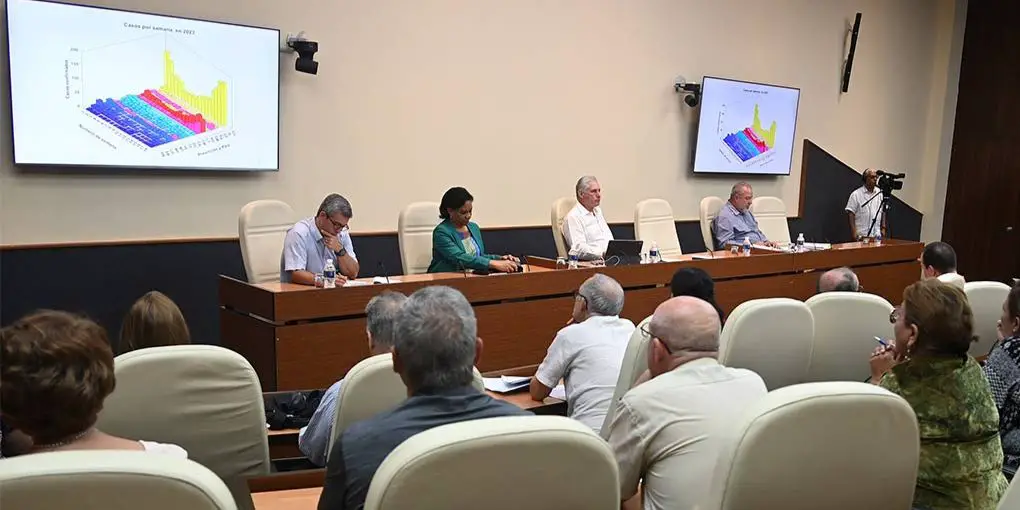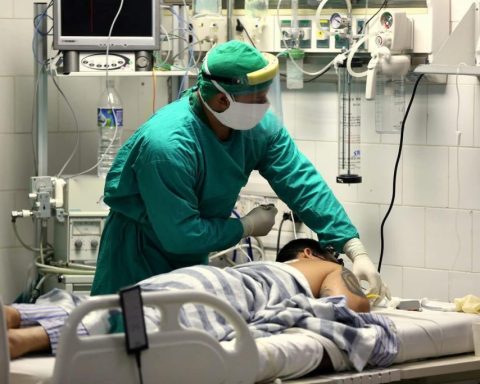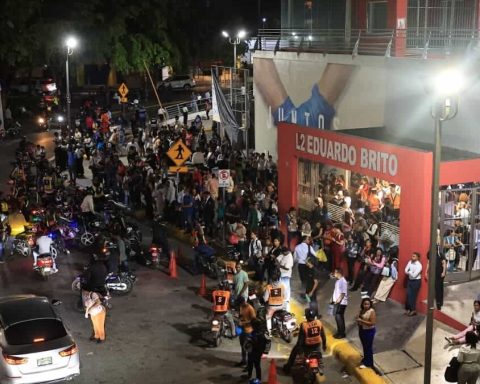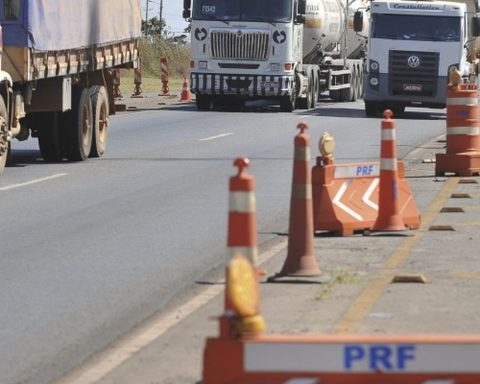MIAMI, United States. – In the coming weeks, Cuba will register a “slight increase” in confirmed COVID-19 cases, the Dean of the Faculty of Mathematics and Computer Science at the University of Havana, Dr. Raúl Guinovart, indicated, according to a report from the state news agency Prensa Latina.
During a meeting of government officials and scientists and health experts, Guinovart updated the projection models for COVID-19 for the coming days, according to a communication published on the Cuba Presidency website.
The specialist noted that between May 1 and 7th, the number of cases remained stable in comparison with the prior week. He revealed that the cumulative incidence of cases on the island was two per 100,000 inhabitants during the last 15 days, with a tendency to increase.
Holguín, Granma and Las Tunas provinces raised that indicator during last week, he indicated.
These three eastern regions of the island constitute a zone where the largest incidence is occurring today, although he specified that globally, the epidemiological situation in the country is similar to what it was at the start of 2023.
Guinovart also indicated that “all provinces will keep up the confirmed-cases control practices during the following weeks, although there will be a slight increase of confirmed cases.”
“We are on the alert, for an increase of cases could occur with the arrival of visitors and the possible introduction of new variants. The basic reproductive rate is around one, which indicates that the epidemic will tend to persist during the following weeks,” stated the expert.
End of the pandemic but not of COVID-19 cases
On May 5ththe World Health Organization announced that coronavirus SARS-CoV-2 is no longer an international public emergency/ However, Dr. Tedros Adhanom Ghebreyesus, WHO’s Director-General, warned that it did not mean that COVID-19 had ceased to be a threat to public health.
In fact, the week prior to the announcement, the disease took a life of very three minutes, and thousands of people remain hospitalized in intensive care units, according to WHO’s own statistics.
The pandemic has seriously affected health systems, the economy and social life, causing economic turmoil, border crossings and schools, and increasing loneliness, isolation, anxiety and depression in millions of people. “COVID-19 has exposed and worsened political divisions and the most pressing inequalities of our world,” stated Tedros.
Notwithstanding, the pandemic has continued its downward spiral for more than a year, thanks in part to an increase in population immunity, a reduction of mortality and the easing of pressure on health systems. “This trend has allowed most countries to return to life the way it was before COVID-19,” said the Director-General of the WHO.
Receive information from CubaNet on your cell phone through WhatsApp. Send us a message with the word “CUBA” on the phone +1 (786) 316-2072, You can also subscribe to our electronic newsletter by giving click here.















